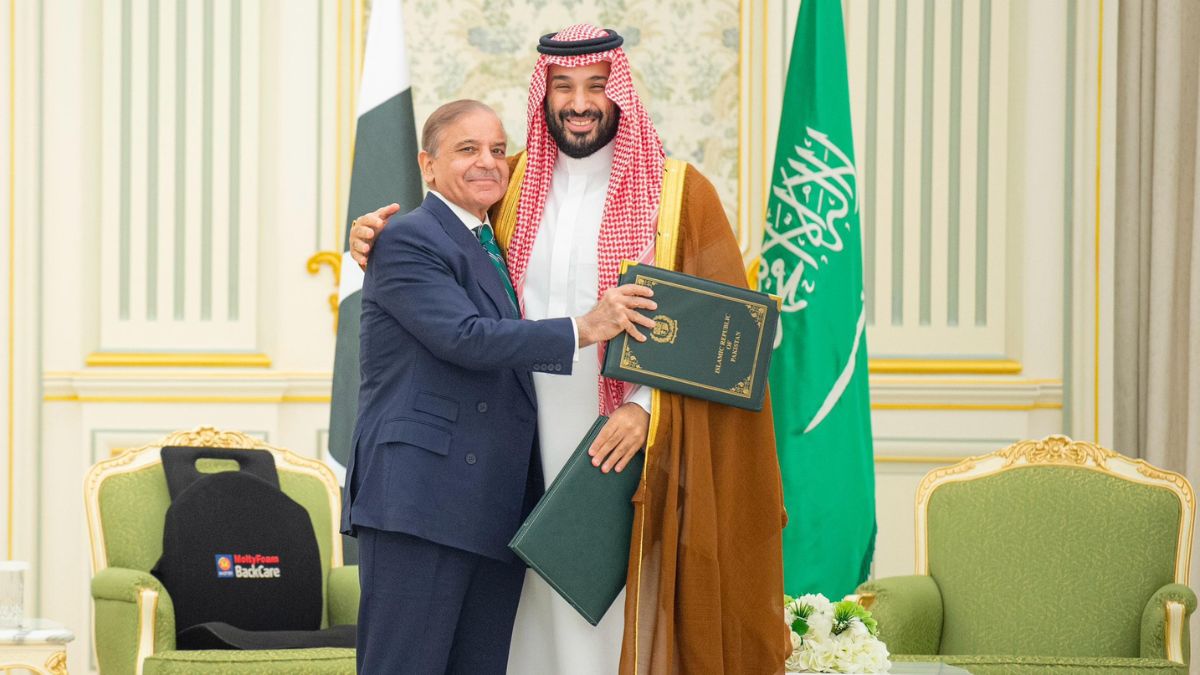Amid the brewing tensions across the continent of Asia, Pakistan’s Defence Minister Khawaja Asif revealed that his country’s nuclear programme “will be made available” to Saudi Arabia if needed, as the two nations sign a new defence pact. The proclamation from Asif marked the first formal acknowledgement that Pakistan is willing to put the kingdom under its nuclear umbrella.
“Let me make one point clear about Pakistan’s nuclear capability: that capability was established long ago when we conducted tests. Since then, we have forces trained for the battlefield. What we have, our capabilities, will absolutely be available under this pact,” Asif admitted in an interview with Geo News on Thursday.
The comments from the Pakistani defence minister came a day after the two nations signed a defence pact that declares that an attack on one country will be considered as an attack on both. Asif described the collaboration as an “umbrella arrangement”, which has been offered to one another by both sides.
“If there is aggression against either party - from any side - it will be jointly defended, and the aggression will be met with a response.” However, Asif made it clear that Pakistan will remain an “ abiding nuclear power ” and his country’s nuclear installations were open for inspections. “All our nuclear installations are open to inspections. We get certificates for our facilities. We are an abiding nuclear power and don’t violate anything,” he said.
Is Pakistan planning to counter Israeli aggression in West Asia?
It is pertinent to note that Saudi Arabia and Pakistan have had strong military ties for decades. However, the recent defence pact between the two nations is coming amid Israel’s aggression in West Asia, with its latest strikes on Qatar .
“Israel, despite being a nuclear power, has not opened its facilities to anyone. All Western nations know that. Many decades ago, Israel retaliated and questioned why its nuclear inspections were being done,” the Defence Minister told Geo News.
Impact Shorts
More ShortsEarlier this week, Asif told Reuters that the defence pact could be extended to cover other Gulf nations and made it clear that Islamabad “had no intention” of using the deal for “any aggression”. “We have no intention of using this pact for any aggression. But if the parties are threatened, then obviously this arrangement will become operative,” he said.
At that time, the Pakistani defence minister also stressed that nuclear weapons were “not on the radar” of the pact. Meanwhile, Israel has not commented on the defence pact between the two nations. Pakistan have been an ardent critic of Israel’s treatment of the Palestinians in Gaza. However, it has never been directly involved in any conflict with the Jewish nations.
“We have not named any country whose attack would automatically trigger a retaliatory response. Neither has Saudi Arabia named any country, nor have we,” Asif said in the interview. When asked if other nations could join the pact, the minister added: “I can say the door is not closed to others.”
Similar sentiments were also echoed by Pakistan’s Deputy Prime Minister Ishaq Dar . “It is premature to say anything, but after this development, other countries have also expressed a desire for similar arrangements,” Dar told reporters in London in televised remarks. “Such things follow due process. Even with Saudi Arabia, it took several months to finalise," he furthered.
)